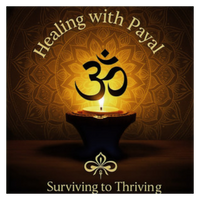🌼 Food for Mental Health
- HealingWithPayal

- Jun 18, 2025
- 3 min read
Updated: Jun 20, 2025
Hello, Wonderful Mental Health Warriors 💛
I know how overwhelming it can feel when your mind is both your safe haven and your battlefield. After months of deep research, journaling, and trial meals, I created this guide—not just for me, but for you, too. My hope? That every tip here becomes a lifeline when you need it most.
🌟 Pause & Reflect
Before we dig in, I want you to take a moment and answer these:
How did that last sweet or salty snack make you feel afterward? (Anxious? Comforted? Overwhelmed?)
What’s your go-to comfort food when you're feeling stressed or low?
Your answers help unlock awareness—a powerful act of self-care.
🌱 Why This Matters: Your Gut, Your Brain, Your Heart
Believe it or not, around 95% of serotonin, the “feel-good” chemical, is made in your gut .Feeding yourself whole foods supports a resilient microbiome, calm neurotransmitters, and a kinder inner dialogue. Conversely, ultra-processed foods can trigger inflammation and disrupt your mental balance .
🍓 Mood-Boosting Foods to Embrace
Notice how your mind and body respond to each of these:
Omega-3 Rich Fish (e.g., salmon, sardines) – support your mood and ease inflammation.
Colorful Fruits & Veg – berries, leafy greens, citrus: antioxidant-rich mood boosters.
Fermented Foods – yogurt, kefir, kimchi: nourish calming brain chemicals.
Nuts & Seeds – almonds, walnuts, pumpkin seeds: packed with stress-lowering minerals.
Whole Grains & Legumes – stable energy and serotonin support.
Herbs & Spices – turmeric, chamomile, lavender: natural mood lift and calm.
Dark Chocolate (70%+) – a mindful pleasure with antioxidant support.
Hydration – even slight dehydration impacts mood and focus .
📅 A 1-Day Mental Wellness Meal Plan that I had created for myself
Note: This is an example, not a recommendation. Create your own based on your dietary needs and health conditions
Time | What to Eat | Why It Helps |
Morning | Oat porridge with berries, chia seeds, walnuts | Steady energy with omega‑3 + fiber = feel-good start |
Snack | Greek yogurt + dark chocolate | Probiotics + antioxidants = soothing combo |
Lunch | Salmon bowl with leafy greens, quinoa, olive oil | Omega‑3s + folate + gut support |
Afternoon | Apple & a small handful of almonds | Fiber + magnesium for stability |
Dinner | Lentil curry with turmeric and brown rice, steamed broccoli | Nourishing, anti-inflammatory, gut-friendly |
Evening | Chamomile or lavender tea | Calms the mind and prepares for restful sleep |
📝 Reflection & Connection
Notice: How does your mood shift between meals and snacks?
Connect: Share your experiences—journal them or talk to someone safe. Healing thrives in company.
💞 Speak to Yourself with Kindness
You're doing the best you can. Self-compassion isn't weakness—it's necessary nourishment. Treat yourself like a dear friend: with warmth, presence, and understanding—even when things feel hard.
🤝 Why I Shared My Journey
After going through my own ups and downs, I found these practices grounding. This guide was originally for me—a reference to come back to on tough days. But I believe that our stories heal each other, and if it can help even one person, it’s worth sharing. So here it is, offered to you with hope and heart.
🌼 Your Next Step…
Take a breath. Pick one small food shift—maybe adding berries to breakfast or swapping chips for nuts. And remember: you’re not alone. You’re seen. You’re worthy. You deserve to feel connected—not just to others, but to yourself.
With compassion and solidarity, a fellow mental health warrior 💚




Comments